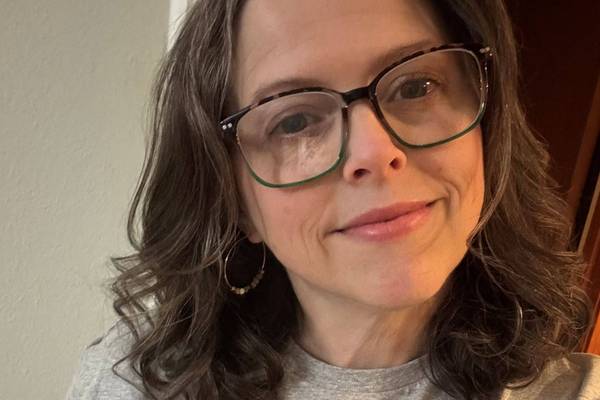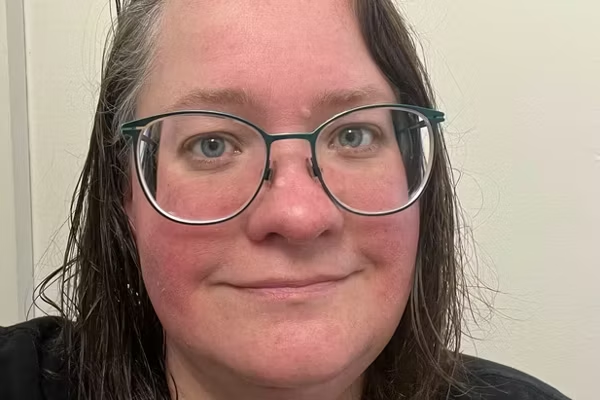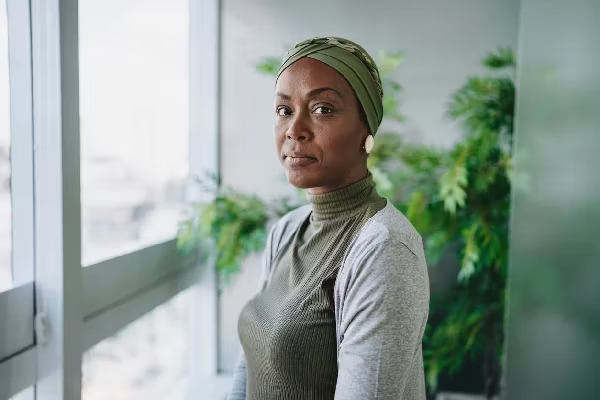Eleven years ago, Isis* had no idea that the vast majority of sexually active people get HPV, the virus that causes cervical cancer, at some point in their lives. So she was completely shocked when, in 2010, a routine Pap test revealed abnormal cells that turned out to be precancerous.
Luckily, Isis had been diligent about cervical cancer screening from a relatively young age, following the advice of her healthcare providers, and she was able to catch the disease early. Screening guidelines for cervical cancer may involve a Pap test and an HPV test together (co-testing) every five years, a Pap test alone every three years or an HPV test alone every five years. Pap tests look for abnormal cell changes that can result from HPV infection, whereas HPV tests detect the virus before any changes occur.
Specific recommendations for which test to get and how often to get it may vary depending on a woman's risks and situation, but all women should seek cervical cancer screening, according to Dr. Jennifer Young Pierce, a gynecologic oncologist, professor of interdisciplinary clinical oncology and residency director for obstetrics and gynecology at Mitchell Cancer Institute in Mobile, Alabama.
"While rates of invasive cancer are low, this is because we treat up to 300,000 women every year for cervical precancer. That's approximately 1 in 6 women," Pierce said. "And too often we miss that window to treat before it becomes cancer and then are left with the need to treat cancer, which is much harder and unfortunately sometimes not successful."
Now 36 with a young baby, Isis knows a lot more about HPV than she did then. But many women do not.
In a 2020 survey conducted by HealthyWomen and the Nurse Practitioners in Women's Health (NPWH), only 46% of white women said their healthcare provider (HCP) had discussed HPV with them at a routine wellness exam. Women of color were more likely to have discussed HPV with their HCP; 58% of Hispanic women and 51% of Black women reported doing so.
Discussing cervical cancer, or cancer at all, is still not the norm in some communities.
"When we talk about the Black community … there are always conversations in the community or with families about maybe diabetes and heart disease and hypertension, but not so much when it comes to cancer," said Rhonda M. Smith, executive director of the California Black Health Network. "It's just a conversation that's still kind of taboo."
And cervical cancer is often less of a focus than other types, such as breast cancer, according to Smith, although it's the fourth most common cancer among women and women do seem to understand the importance of getting screened.
In fact, 88% of respondents in the HealthyWomen/NPWH survey reported that they believe cervical cancer screening is important to managing their overall health and well-being. Black (95%) and Hispanic (92%) women were more likely than white (86%) women to say so.
Black women may also be more knowledgeable about the Pap test than white women; 91% of Black women reported being familiar with the Pap test compared with 84% of white women and 83% of Hispanic women.
This awareness is reflected in screening rates among women over age 18 who have not had a hysterectomy. According to the Centers for Disease Control and Prevention (CDC), 80% of Black women had had a Pap test in the prior three years compared with approximately 71% of both Hispanic and non-Hispanic white women.
CDC data also show that lower-income women and women without a high school diploma or GED were less likely to have had a Pap test, as were women without health insurance. Overall, only 60% of uninsured women had had one, compared with 79% of women with health insurance.
Isis was lucky in this regard. Though she was uninsured at the time of her diagnosis, she'd been able to get screened — and treated with a procedure to remove abnormal cells from her cervix — without financial hardship. But just the cost of screening can deter some women.
"Too often, women skip screenings because they can't afford them," Pierce said. "We see this in 50% of women diagnosed with cervical cancer."
But Pierce says there's no financial reason to skip cervical cancer screening. Every state offers free screening and treatment for uninsured and underinsured women through the Breast and Cervical Cancer Early Detection Program.
Screening is important, but on its own, it's not sufficient to prevent cervical cancer deaths.
Black women are more likely to die from cervical cancer, even with higher screening rates. According to a study that looked at women who have not had a hysterectomy, the death rate among Black women is more than double that of white women: 10.1 per 100,000 compared with 4.7 per 100,000.
Studies have shown that Black women tend to find cervical cancer later in its progression, get less aggressive treatment, and have less access to care, which may explain why their outcomes are worse.
"There are differences in access to treatment and followup as well as differences in treatment for cancer," Pierce said. "We continue to march closer to equity in this area but most of these differences can be explained by social domains of health, all of which are impacted by systemic racism such as poverty, rurality, access [and] education."
To reduce cervical cancer deaths, Pierce urges young women and teens to talk to their healthcare provider about HPV vaccination.
"After 15 years on the market, we know it's safe. We know it's effective," she said. "And we are already seeing significant reductions in disease in vaccinated patients."
Stigma still surrounds HPV and the cancers it causes, but Isis encourages other women not to let that get in the way of getting the screening and the care they need.
"I don't think that there's really any shame in having had HPV or being exposed to HPV," Isis said. "There's really so little you can do about it, so the best thing is prevention."
*Isis asked us not to use her last name.
- The Importance of Cervical Cancer Screening During COVID-19 and ... ›
- Don't Put Off Your Screening and Vaccination for Cervical Cancer ... ›
- Can HPV Lead to Heart Disease in Women? - HealthyWomen ›
- Take Steps Toward Preventing Cervical Cancer - HealthyWomen ›
- How often should I be screened for cervical cancer? - HealthyWomen ›
- Comprehensive Guide to Cervical Cancer Treatment Options - HealthyWomen ›
- Guía integral de opciones terapéuticas para el cáncer cervical - HealthyWomen ›
- American Cancer Society Cervical Cancer Screening Guidelines - HealthyWomen ›
- Cervical Cancer - HealthyWomen ›




